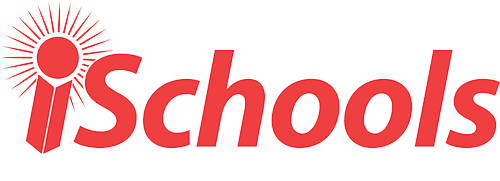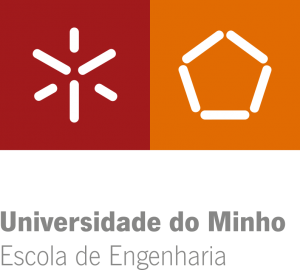Computer Science and Technology (CST)
Areas
Computer Science and Technologies (CST) R&D group activities cover a wide range of fundamental and applied research topics related to computer science and technology. The strategic vision of CST focuses in advanced computing technologies and applications. Indeed, the research relies on a set of core scientific areas that provide advanced computing technologies as a means to contribute to the resolution of complex problems in many areas of knowledge and to address important societal challenges. There are four key scientific areas providing computing technologies:
1 – Artificial Intelligence and Intelligent Systems;
2 – Biomedical and Health Informatics;
3 – Language Processing;
4 – High Performance Computing.
This strategic vision lays upon several successful cases of applied computing research efforts, crossing these computing related scientific areas with several other domains of knowledge spanning most of the scientific and technological areas. These efforts are mainly visible within Intelligent Systems arena, with important efforts in Biomedical Informatics and Medical Informatics research.
There are also other fruitful collaborations in: Advanced Computing, Computational Sciences and Engineering, Computational Linguistics, The Law, Civil Protection, Digital Preservation and Digital Libraries, among others.
These lines of research are supported by interdisciplinary teams involving CST members, working closely with researchers from several other research units from the University of Minho, but also from other national and international institutions.
Impact of research
Overall, the impact of CST research in 2013-17 can be measured using two key ratios:
a) 7.2 indexed (ISI or Scopus) papers per integrated researcher and year;
b) 25.8 KEUR of non-FCT funded projects per integrated researcher and year.
Three major contributions
1) International activities
The CST members were involved in a large number of international activities, including research networks, scientific committees and organization of major scientific events. Some highlights are
board members of organizations such as: IFIP, IEEE, IberoAmerican Society of AI and The Portuguese Association for AI. Some CST researchers are associate editors in international journals, such as Computer Science and Information Systems (Index by ISI and Scopus), Ambient Intelligence and Smart Environments (Index by ISI and Scopus.); and have joined committees of high quality conferences, such as: ECAI, IJCAI, IE, PAAMS, ICAIL, WAPL. Some CST researchers were invited to participate in international doctoral and project evaluation juries. They received international awards for their research, namely: IBM Award of Scientific Excellence – Best Demonstration (PAAMS 2017, Best paper in EPIA 2017, Slate 2017, Agreement Technologies 2016 and PECCS 2015).
CST researchers are involved in an active cooperation with UTexas in Advanced Computing, through co-supervision of PhD students, planning of annual Summer internships at UTA for PG students and Summer Schools in Portugal and in the board of the CoLab for Advanced Computing (PT-UTexas).
2) Funded R&D
A total amount of non-FCT research funds of 25.8 KEUR per integrated researcher and year was captured. This includes international projects, such as RISEWISE – Rise Women with disabilities in Social Engagement (MSCA-RISE-2015 – Marie Skodowska-Curie Research and Innovation) (140 KEuros), Development and Research on Innovative Vocational Education Skills – DRIVES (ERASMUS+) (4 MEuros), PLUSTEX – Policy Learning to Unlock Skills in the Textile Sector (INTERREG IVC ) (1.7 MEuros), SeARCH-ON2: HPC UMinho infrastructures funded by FEDER (300 KEuros), Repositories for Education with Dynamic Reconfigurability in the Humanities (Spanish Research Project) (80 KEuros) and collaborations with industry.
3)Doctoral Programme
Doctoral Program in Informatics (PDI) and Doctoral Program on Biomedical Engineering (PDEBIOM).
The CST R&D group coordinated the PhD Program in Informatics: http://pdinf.di.uminho.pt/?q=en/node/155, and participated in the board of PhD program in Biomedical Engineering (http://pdebiom.eng.uminho.pt/en/node/4), with special attention to the topic on Biomedical and Health Informatics.
Both PhD programs attract international students (e.g., Brazil, Ecuador, Argentine, Jordan, India) and some of them are co-supervised by international researchers.
Also, the PhD students are authors of publications in top well known journals such as “Neurocomputing”, “Medical Systems”, “Wireless Mobile Networks, Ubiquitous Computing, and
Dependable Applications” or “Autonomous Agents and Multi-Agent Systems”.
Main Publications in 2013-2017
Carneiro, D., Novais, P., Andrade, F., Zeleznikow, J., & Neves, J. (2013). Using case-based reasoning and principled negotiation to provide decision support for dispute resolution. Knowledge and Information Systems, 36(3):789-826 (ISI JCR Q1 and SJR Q1 in Artificial Intelligence; 37 Scopus and 46 Google Scholar citations).
algoritmi.uminho.pt/downloads/CST-01.pdf
Neves, J., Martins, M. R., Vilhena, J., Neves, J., Gomes, S., Abelha, A., Machado, J. & Vicente, H.
(2015). A soft computing approach to kidney diseases evaluation. Journal of medical systems, 39(10:131-140 (ISI JCR Q2 in Medical Informatics; Scimago SJR Q2 in Health Informatics; 5 Scopus and 6 Google Scholar citations).
algoritmi.uminho.pt/downloads/CST-02.pdf
Gonçalves, R. C., Batory, D., Sobral, J. L., & Riché, T. L. (2017). From software extensions to product lines of dataflow programs. Software & Systems Modeling, 16(4):929-947 (ISI JCR Q2 in
Software Engineering; Scimago SJR Q2 in Software; 1 Google Scholar citations).
algoritmi.uminho.pt/downloads/CST-03.pdf
CST Coordinator: Paulo Jorge Freitas de Oliveira Novais
CST Members:
CST Research Groups:



